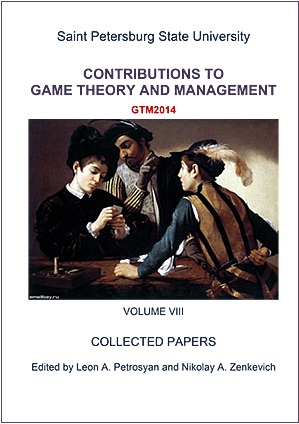Optimal Doubling Strategies in Backgammon
Abstract
In this paper we discuss decision procedures related to an important aspect of the backgammon game, namely a doubling. We focus on proper choice of the doubling time and optimal strategies on whether to accept or reject the doubling proposed by the opponent. There are two stages of the game that are most amenable to the analysis. The first one is called “the races”, during this stage opponent's checkers do not block player's moves, the goal is to put all checkers into “the house” and then to take them off the board. In this case we calculate optimal doubling time as well as the optimal strategy for acceptance and rejection. Another case is the so-called two-steps game, the situation in which each player has at most one turn before the game ends. This situation is analyzed using the concept of complex rational behavior.
Keywords:
backgammon, decision making, doubling strategies
Downloads
References
Downloads
Published
How to Cite
Issue
Section
License
Articles of "Contributions to Game Theory and Management" are open access distributed under the terms of the License Agreement with Saint Petersburg State University, which permits to the authors unrestricted distribution and self-archiving free of charge.




